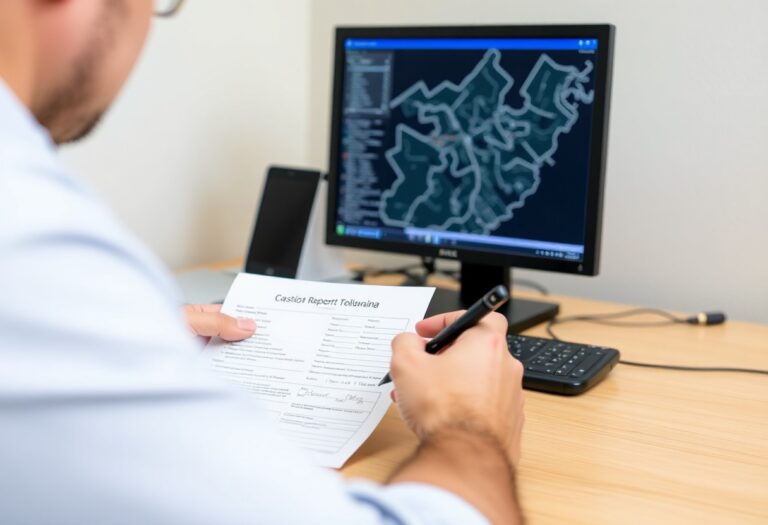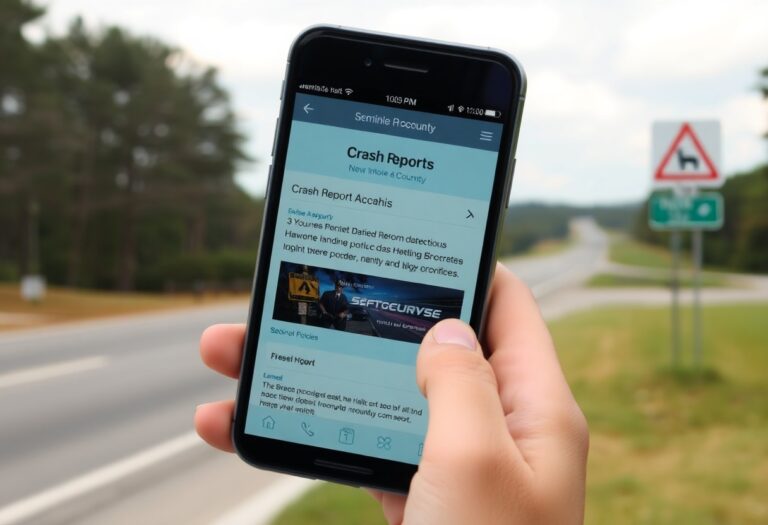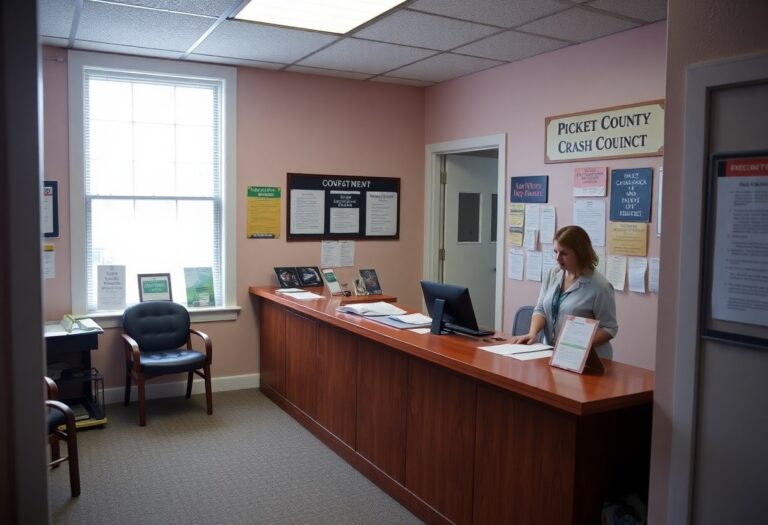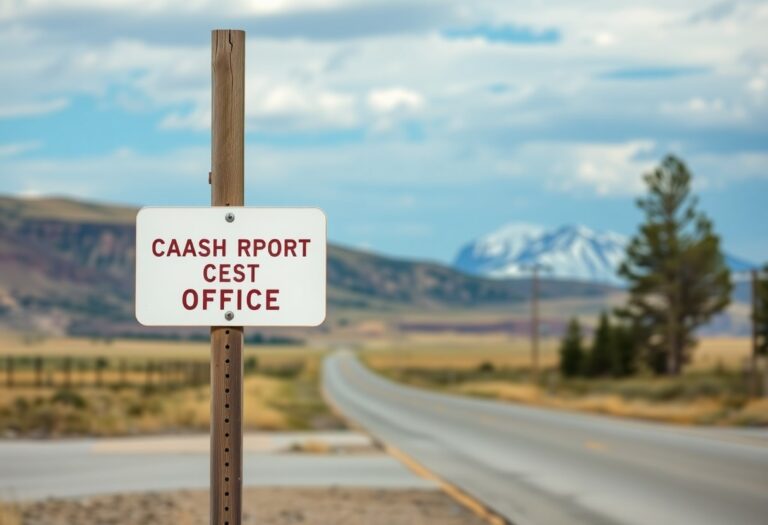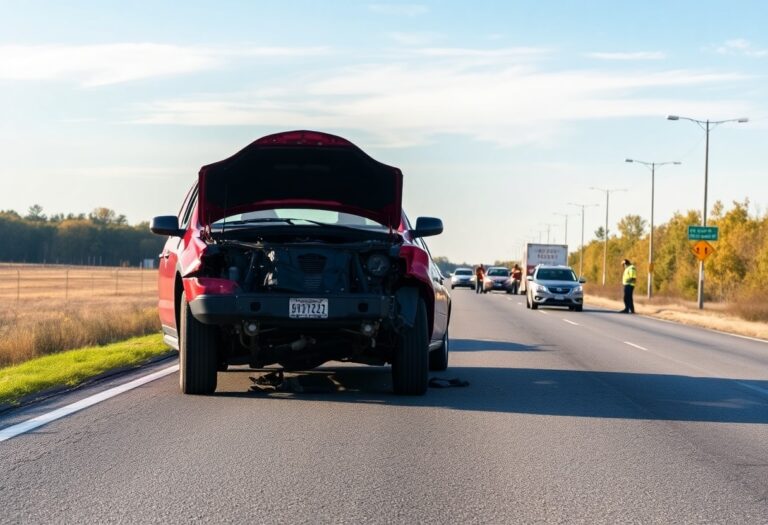You have the right to file a car accident report in Cherokee County, Texas, and doing so is necessary for protecting your interests. First, you should gather all necessary information including details of the accident, witness accounts, and involved parties. Next, head to your local law enforcement agency to file your report promptly, ideally within 10 days of the incident. This report is vital for any insurance claims or legal processes that may follow. By following these step-by-step instructions, you’ll be well-equipped to navigate the situation and ensure your rights are safeguarded.
The Legal Framework Governing Car Accident Reports in Cherokee County
Understanding the legal framework surrounding car accident reports in Cherokee County is important for drivers involved in an accident. The laws set forth guidelines for how these reports should be handled, ensuring that all important information is documented effectively. This framework not only helps in resolving claims but also aids law enforcement in maintaining road safety.
Texas State Laws Regarding Accident Reporting
In Texas, any car accident that results in injury, death, or property damage exceeding $1,000 necessitates a formal report. You are required to file this report with the Texas Department of Transportation within 10 days of the incident. This law is designed to ensure a timely response, helping all parties involved in the aftermath of the accident.
Local Ordinances and Additional Requirements in Cherokee County
In addition to state laws, Cherokee County may have specific local ordinances that govern accident reporting. Local law enforcement may request additional documentation or investigation reports, which could affect your claims process. It is advisable to check with local authorities for any requirements that go beyond the state mandates.
Your obligation to familiarize yourself with local ordinances can significantly impact how you handle a post-accident situation. Cherokee County may call for certain records to support claims, such as witnesses’ statements or specific details about the accident scene. Being proactive in gathering this information will enrich your report and support any future legal actions or insurance claims you might pursue. Always consult the Cherokee County Sheriff’s Office for the most accurate information on local regulations to avoid potential pitfalls.
Essential Information to Gather Immediately Post-Accident
Gathering imperative information at the scene of an accident can significantly impact the outcome of your claim and your understanding of the incident. Ensure you collect details such as the names and contact information of all parties involved, including drivers, passengers, and pedestrians. Record the vehicle identification numbers (VIN), insurance details, and license plate numbers as they play a key role in identifying insurance coverage and potentially fault. Don’t overlook writing down the date, time, and location of the accident, as well as weather and road conditions.
Key Details to Document at the Scene
Specific details to document include the make, model, and year of all vehicles involved, along with any visible damages. It’s beneficial to create a simple diagram of the accident scene to illustrate the positions of vehicles, traffic signs, and other pertinent elements. Be sure to obtain contact information from any first responders, as their official accounts may be useful later. Make notes on any conversations you have with the other drivers or witnesses to capture their immediate statements.
Importance of Witness Statements and Photos
Witness statements and photographs often serve as vital evidence that can substantiate your version of events. A witness may offer an unbiased perspective, providing details that you might not remember. Photographs capture critical visual information, such as vehicle damages, skid marks, and the surrounding environment, all of which can clarify the accident’s circumstances.
In both civil and criminal cases, witness statements can dispel common biases and establish facts that could influence liability. Independent witnesses can corroborate your account of the accident, preventing disputes over who was at fault. Photos capturing the layout of the scene, road signs, and vehicle placements bolster credibility. Even minor details, like road conditions or surrounding landmarks, can paint a more comprehensive picture of the event, aiding insurance investigations and legal proceedings.
Navigating the Reporting Process
Understanding how to report your car accident can streamline the process. Initially, you should reach out to your local authorities, as they will provide the reports and documentation needed. Besides reporting the incident to law enforcement, it’s beneficial to understand the various options available for filing your report and the potential implications of each method chosen.
How to File a Report with Local Authorities
To file a report with local authorities, contact the Cherokee County Sheriff’s Office or the appropriate local police department. Depending on the jurisdiction, you may need to provide your driver’s license, vehicle registration, and insurance information. If there are injuries or significant damages, a standard police report will likely be generated at the scene, which you can later obtain for your records and insurance claims.
Online vs. In-Person Reporting: Pros and Cons
Deciding whether to report online or in person depends on your circumstances and preferences. While online reporting offers convenience, in-person filing can provide immediate assistance and clarification regarding your case. Evaluating these options based on the specifics of your situation is imperative.
Pros and Cons of Online vs. In-Person Reporting
| Online Reporting | In-Person Reporting |
|---|---|
| Convenient and accessible from anywhere | Immediate personal interaction with officers |
| Time-efficient with minimal waiting | Opportunity for clarifications and further assistance |
| Typically requires fewer forms (depending on the agency) |
Can provide faster resolution for urgent matters |
| Potentially limited to minor incident reporting | Facilitates multi-issue reporting complexities |
| May require follow-up for evidence collection | Allows for immediate evidence documentation |
| Can be done at any time | Limited to office hours |
| Less intimidating for some individuals | In-person support for emotional situations |
| Can be accessed and completed at your own pace | More accountability from officers on duty |
| Potential for technical issues during submission | Immediate feedback from law enforcement |
| Risk of missing critical details during digital submissions | Full access to all required documents and forms |
Your choice between online and in-person reporting ultimately rests on your unique situation. While online options facilitate quick submissions in less severe cases, in-person visits can be more beneficial when a detailed interaction with law enforcement is imperative. Evaluate the circumstances and choose the method that aligns best with your needs and the accident’s complexity.
Understanding the Timeline for Accident Reporting and Retrieval
Being aware of the timeline surrounding accident reporting is vital. In Cherokee County, Texas, you have a limited window to file a report following a car accident, ensuring that you adhere to local regulations and expedite the retrieval of important documentation. Prompt action not only aids in your claim process but also helps preserve crucial evidence in your case.
Key Deadlines You Can’t Afford to Miss
After an accident, you typically have 10 days to report the incident to local authorities if there are injuries or significant property damage. Additionally, insurance companies often expect you to file your claim within a specific timeframe; adhering to these deadlines is vital for a smooth claims process.
How Long It Takes to Receive Your Report
Once you file your report with the local authorities, you can expect to receive a copy within 5 to 14 business days. This timeframe can vary based on the volume of reports being processed and any additional investigations required. Keeping in touch with the relevant department will help you gauge an accurate timeline for your specific situation.
Receiving your accident report promptly allows you to move forward with any insurance claims or legal proceedings. If the report is delayed beyond the standard time, you can follow up with the records department to check on the status. Reports often require a formal request for release, which could add to the waiting period. By following up consistently, you ensure that you aren’t left in limbo, which could affect other important timelines related to your case.
Common Mistakes to Avoid When Filing Car Accident Reports
Avoiding mistakes during the car accident reporting process can save you time and reduce complications. One of the most common errors is failing to provide accurate details, such as the correct date, time, or location of the accident, which can hinder your claim. In addition, some individuals neglect to gather witness statements or photographs of the scene, which can serve as vital evidence. Disregarding the requests from insurance companies or law enforcement can also lead to unnecessary delays, so it’s wise to cooperate fully and provide all requested information promptly.
Pitfalls that Can Delay or Complicate the Process
Inadequate documentation is a major pitfall that can delay the process of filing a car accident report. Missing police reports or lack of supporting evidence, such as photographs of the scene or witness contact information, can stall your claim and even lead to its denial. Moreover, waiting too long to file can lead to legal ramifications, as some jurisdictions impose strict deadlines for filing accident reports. Stay organized and proactive to avoid these complications.
Misunderstandings About Liability and Fault
Many individuals misinterpret the concept of liability, assuming that police determinations directly dictate fault. This belief can lead to disputes during the claims process, complicating your situation even further. It’s necessary to understand that various factors contribute to liability and that police reports are only one aspect of establishing fault.
For instance, even if a police officer determines a driver was at fault, insurance companies may conduct their own investigations and arrive at different conclusions based on available evidence. Factors such as traffic laws, roadway conditions, and driver behavior play critical roles in determining liability. As a result, you may find yourself facing conflicting opinions on fault, which could complicate negotiations with insurance providers. Keeping accurate records, including witness statements and photographs, will help clarify any misunderstandings about liability and strengthen your position in any discussions regarding fault. Understanding the nuances of liability will provide better clarity in your claim process and empower you to advocate for your rights effectively.
Conclusion
Drawing together the vital steps for obtaining car accident reports in Cherokee County, Texas, ensures that you have the necessary information to move forward. By understanding how to gather the required details, submitting your request accurately, and knowing your rights, you can streamline the process. Having access to your accident report not only aids in legal matters but also contributes to personal insurance claims. Stay organized and proactive to navigate this situation effectively.







